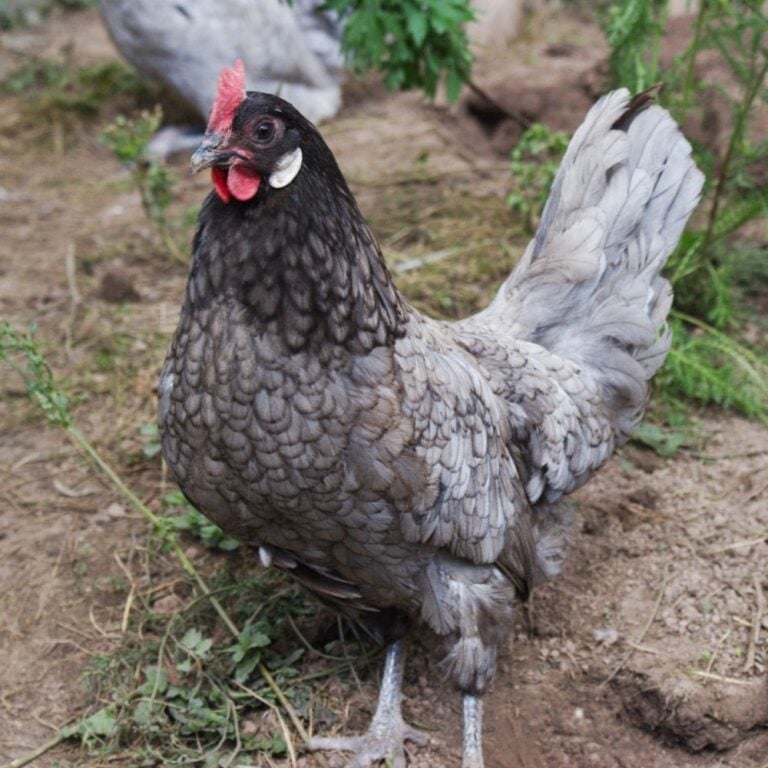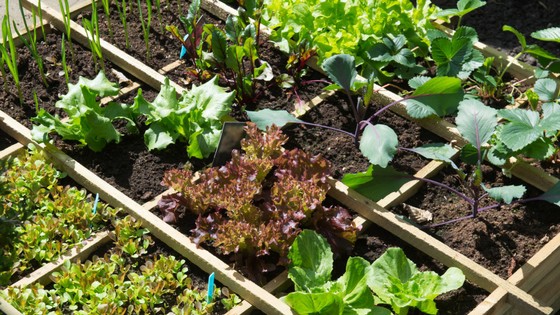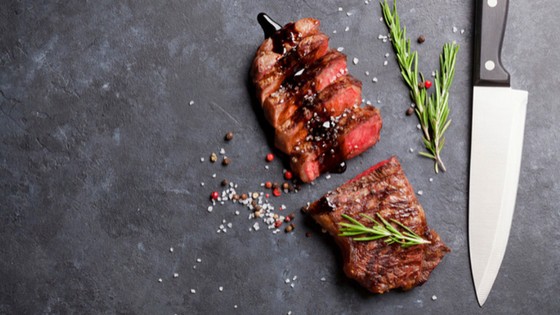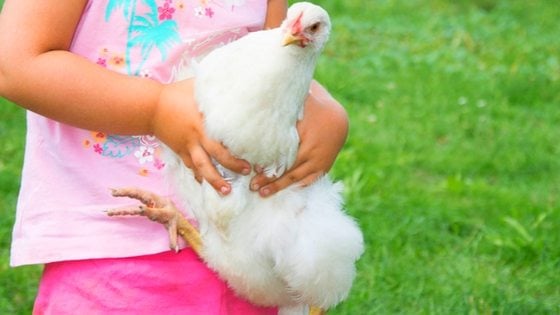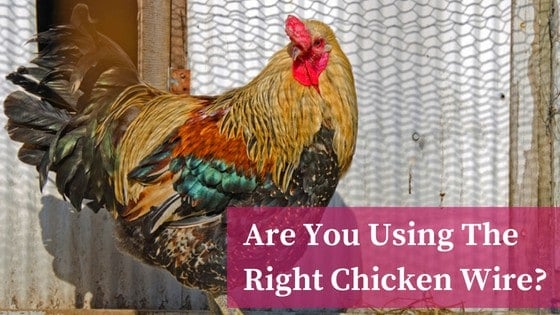Problem tomatoes with brown and black spots on the ends? Fix this by using eggshells in the garden!
These are symptoms of calcium deficiency – and your garden needs some serious first aid!
You CAN fix it – if you’re fast enough! That’s where your leftover eggshells come in. If you have chickens or eat a lot of eggs, you can repurpose your leftover eggshells to improve your garden!
Calcium is an essential mineral, and it aids plant development by helping them form healthy, strong cell walls. Without calcium, your plants will experience lags and slow growth and could die in the long run.
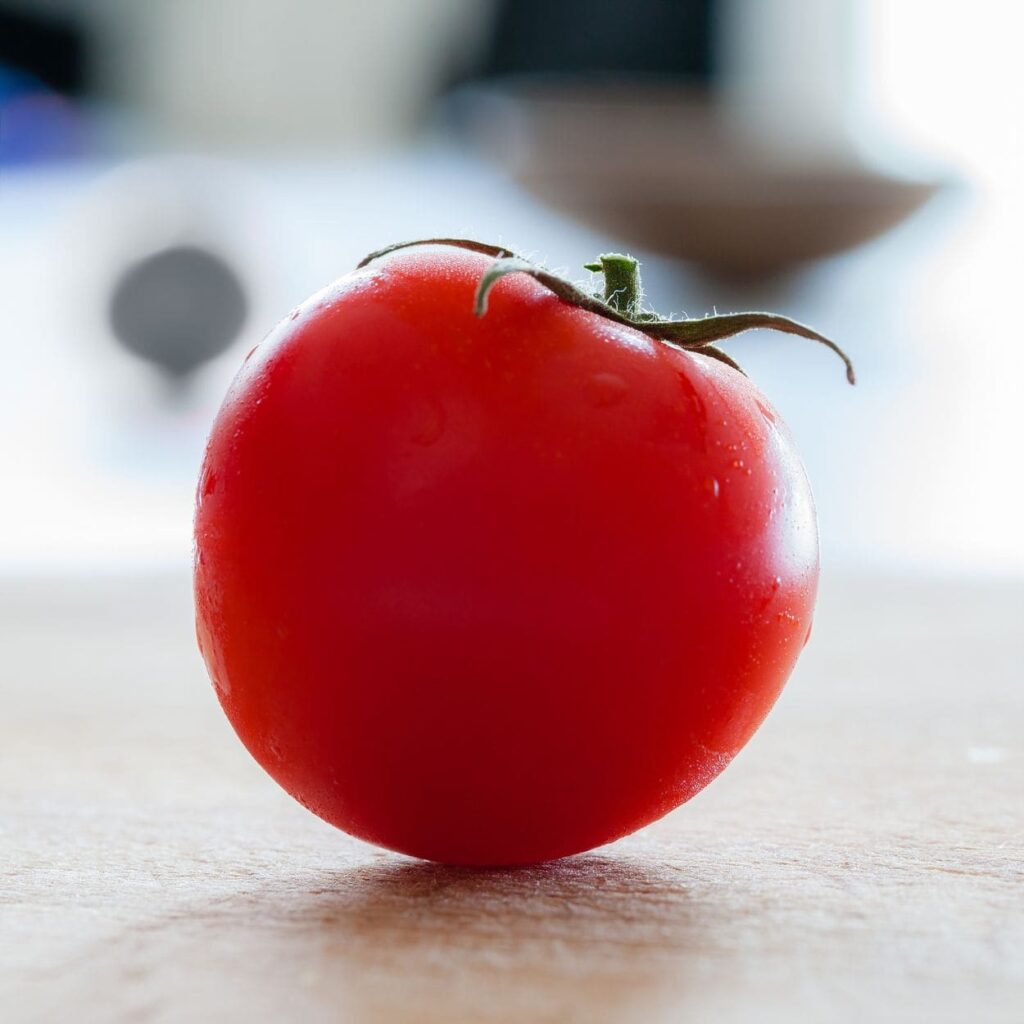
Table of Contents (Quickly Jump To Information)
Eggshells to the Rescue
As you can imagine, since we have so many ducks and chickens, we have a LOT of eggshells, and it’s a shame to just throw them away.
Eggshells, which are mostly calcium, are a perfect way to improve your tomato harvest – and in this article, I’m going to show you how to do just that!
Stopping Disease In Its Tracks
Tomatoes can develop blossom end rot – which is a symptom of not having enough calcium. Should your tomatoes develop this disease, you can add crushed eggshells directly to the soil to help your plants.
Despite common belief, you can help a plant that’s developed blossom end rot, and the plants can produce healthy fruit once they’re no longer calcium deficient.
Before adding them to your garden, grind the eggshells in a blender or with a mortar and pestle to make the calcium more bioavailable. You can then mix the powder with water or add it directly to the soil.
Just note that adding eggshells to your garden before the planting season will help prevent blossom end rot, and it’s better to prevent it than to fix it.
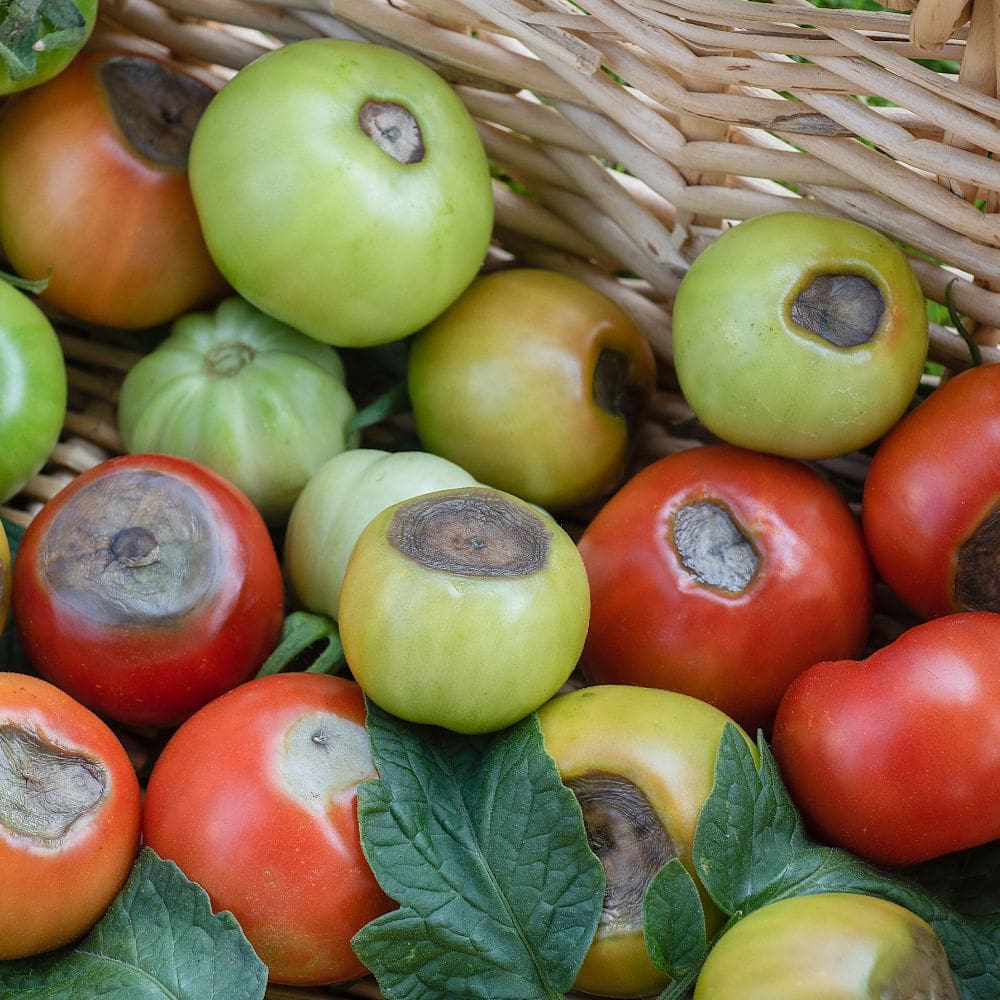
Preventative Measures: Adding Calcium to Your Compost With Eggshells
While you can add eggshells directly into your garden, taking the extra step to compost them is also a good idea for this extra calcium boost. As they degrade, they’ll help neutralize the pH of your compost with calcium carbonate, as well as leave rich minerals behind.
Be sure to wash and crush them before adding them to your compost so they won’t attract insects and other animals and so they break down faster. Crumbled eggshells are just the trick to avoid bad bacteria growth. If you really want to put in the effort, you can also grind them into a fine powder and sprinkle it on your garden soil. Eggshell powder is an amazing tool.
Starting Tomato Plants In Eggshells
Another idea, if you’re feeling creative or truly committed to making sure your tomatoes have enough calcium, is to start your tomato plant seedlings IN eggshells. Us an eggshell as cute little seed starting pot and line them up in an egg carton (naturally perfect as a eggshell pot holder)!
When you transplant them, you can transplant the seedling AND the eggshell (which you’ll bury directly into the soil).
Whenever you start your tomato plants, clean out eggshells, leaving most of the shell intact. Place potting soil in the shell, and then insert your tomato seed.
As it sprouts, it will get nutrients from the soil, and the shell will continue to feed it long after it’s been transplanted (you should still side-dress with compost when it flowers, however).
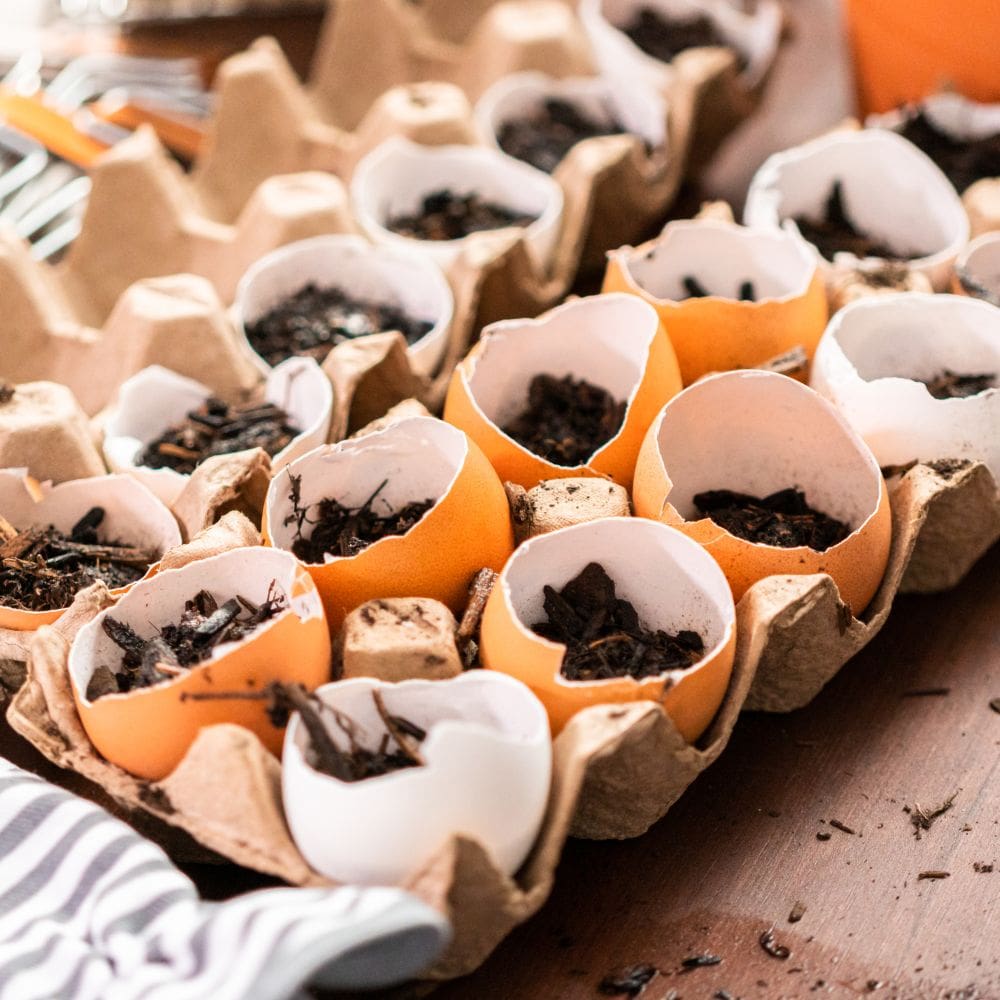
Eggshell Water
It’s a thing. You can make eggshell water with your eggshells as a super-powered fertilizer! Read up on this technique and more here. This type of fertilizer contains essentials like potassium, phosphorus, magnesium, and nitrogen. Some folks call it eggshell tea.
Add Eggshells to Your Compost Pile
You can throw the whole eggshell into your compost bin (or compost heap), but it’s best if you add finely-ground eggshells. It makes for better composting in the long run. Plus it helps keeps the rodents out of your compost area.
Safeguarding Against Pests
Coarsely crushed eggshells have the ability to develop a strong and highly effective barrier against the incidence and occurrence of pests such as slugs and snails, which also happen to love chomping down on tomatoes.
Slugs and snails have soft bodies, and the sharp spiky shells can cause some deadly harm – so the pests avoid the ragged eggshells at all costs.
Simply arrange the crushed layer of the eggshells around your tomatoes, and you can rest easy that snails and slugs will find something else to eat for dinner.
Can Eggshells Help With Other Plants?
Yes! Many plants need calcium to thrive and produce. Plants like peppers, brocolli, cauliflower, and spinach will all benefit from ground eggshells in the soil.
Summary
Does this method sound promising? It is! Do you suddenly feel the urge to produce more eggs in order to accomplish this? If so, read up on some of the best egg-producing chicken breeds here. Also, be sure your chickens have plenty of calcium so they can produce calcium rich eggs. Need help, try giving your flock oyster shells for calcium!
Maat van Uitert is a backyard chicken and sustainable living expert. She is also the author of Chickens: Naturally Raising A Sustainable Flock, which was a best seller in it’s Amazon category. Maat has been featured on NBC, CBS, AOL Finance, Community Chickens, the Huffington Post, Chickens magazine, Backyard Poultry, and Countryside Magazine. She lives on her farm in Southeast Missouri with her husband, two children, and about a million chickens and ducks. You can follow Maat on Facebook here and Instagram here.

